
Playing pretend or imaginatively is beneficial for your child's healthy development and involves more than just having fun. It gives your child a chance to try out different experiences and roles. Playing with imaginative toys for toddlers occurs when your youngster imitates their favourite fictional or real-world hero, or figure. They could imitate a parent, friend, doctor, or instructor they are familiar with.
Benefits of Imaginative Play
1. Social Development
Learning social skills might be difficult. But, as they play, kids naturally relate to one another and form connections. Children develop the skills of sharing, cooperation, and taking turns through their interactions with others.
There are chances to play about with social restrictions. They become more connected, self-sufficient, and socially adept while also developing their social skills. As a result, they develop stronger bonds with their classmates.
2. Emotional Development
Imaginative play fosters emotional competence and empathy. Your kids may practise demonstrating empathy and caring for others during pretend play. For instance, kids learn how to be kind, patient, and helpful when they engage in medical role-play.
Your children learn how to behave correctly as they start to comprehend their emotions and feelings.
3. Language Development
The research findings are increasingly supporting the importance of imaginative play in young children's language development. The key to this kind of play is communication. Relax while keeping an eye on your child during playtime.
Children like narrating and describing what is happening. These talks help them build their vocabulary and communication skills. You can help your children enhance their language skills even more by creating a positive, high-quality play environment.
4. Increased Creativity
Creativity helps to reduce stress. It also plays a crucial role in your child's well-being. Fantasy play gives your youngster a chance to develop their imagination. As a result, they become more creative. Your children may pretend to be anything or anybody they choose if they have a strong imagination. Adding wooden building pieces to your child's play area can further encourage their creativity and imagination. Hence, they'll be happy and more likely to grow up to be strong and self-assured individuals.
10 Imaginative Play Toys to Increase Children's Curiosity and Creativity
Rainbow Blocks
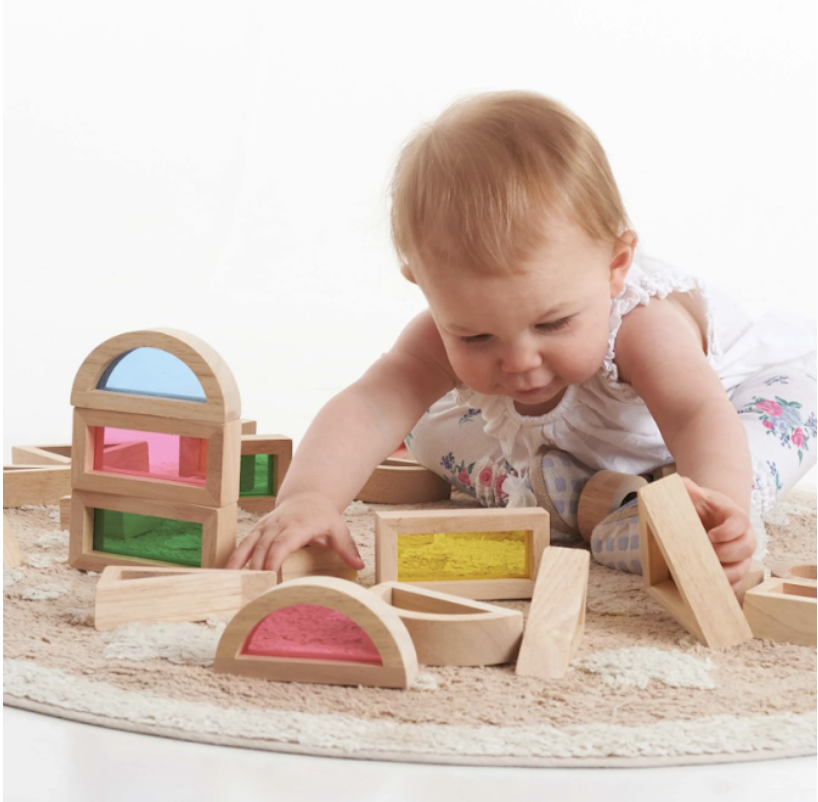
The transparency of acrylic allows light to travel through it and provide an eye-catching effect that can capture your child's imagination. The shapes made of acrylic look beautiful when placed on a light panel and are excellent for teaching about shapes, colour mixing, or basic block construction.
Wooden Treasures Taster Set
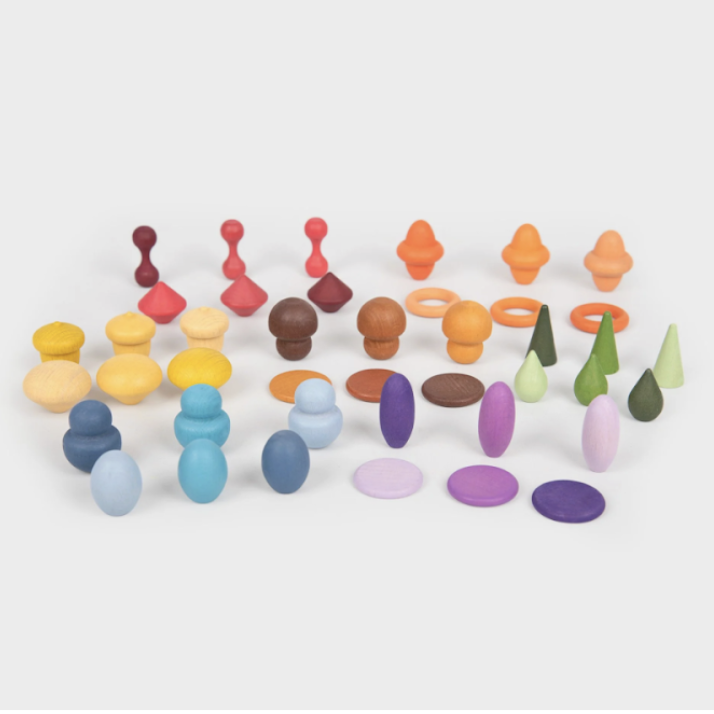
A lovely collection of colourful, smooth wooden treasures will allow your youngster to experience the delights of play-based learning. These simple yet fascinating objects will stimulate your child's innate curiosity and give them the freedom to use their boundless creativity to explore ways to use the objects in imaginative play and learn about their surroundings.
Rainbow Wooden Rings
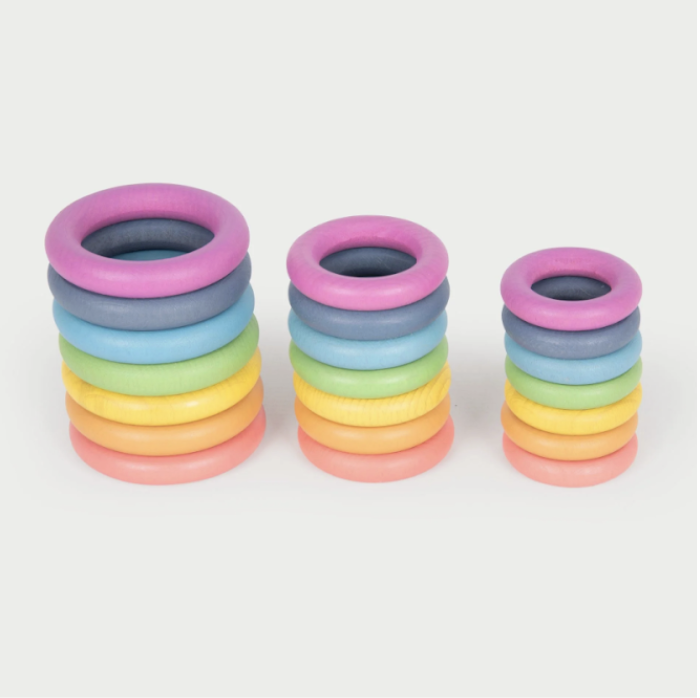
This toy is great for teaching your child about colour and pattern-making while allowing them to use their creativity during creative play, develop their building skills, and enhance their counting, sorting, stacking, and sequencing skills. The gorgeous, smooth, solid beechwood rings represent the seven colours of the rainbow and have a natural woodgrain finish. They are perfect for sequencing, sorting, rolling, and threading.
Silishapes Linking People
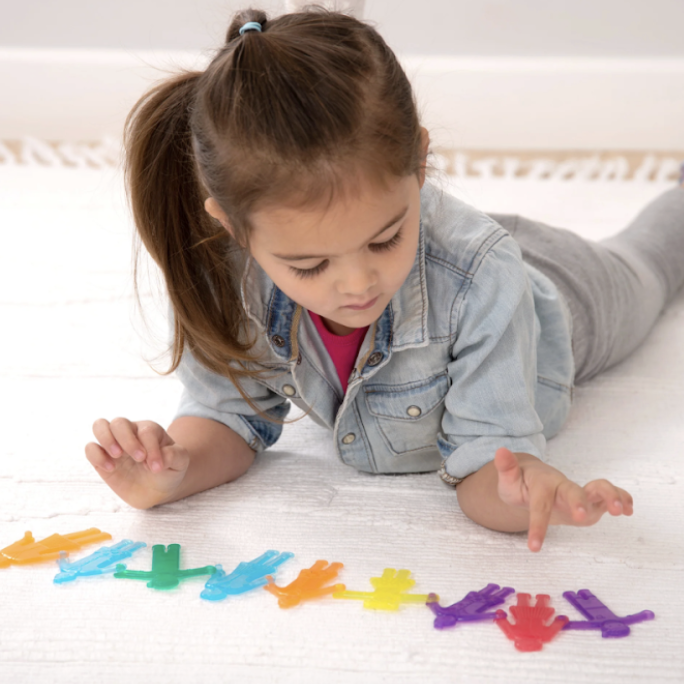
You can use linking people to help your child learn about family ties. Each of the six coloured family sets contains six separate family members who may be connected by their hands. Employ them in tiny word games or messy play activities in the sand or water. The toy is excellent for promoting descriptive language and observational skills as well as for storytelling, language development, arithmetic sorting, and pattern-making.
Mirror Blocks
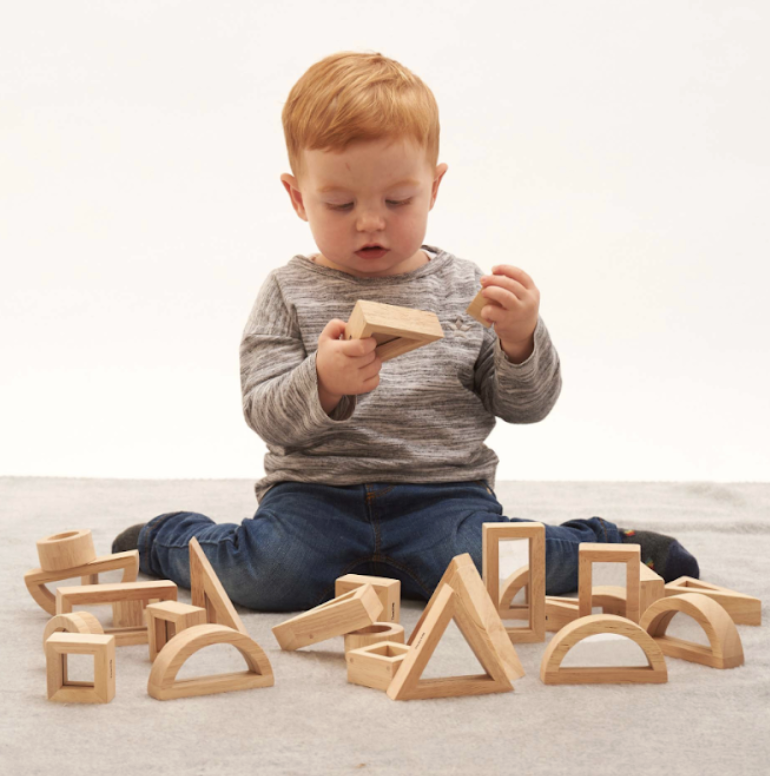
Your kids will enjoy investigating their reflection in the smooth, tactile, and reflective surface as well as simple block construction and being mesmerised by the light reflection. These reflective blocks are perfect for learning about forms and creating reflecting patterns when combined with a light panel.
Domestic Animal Family Match
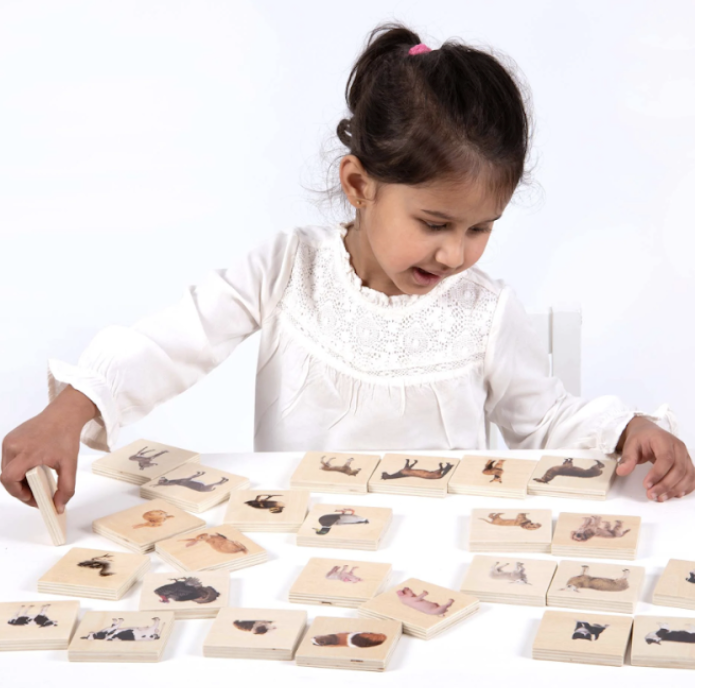
The domestic animal family match is a versatile and colourful wooden game. It consists of fourteen pairs of smooth, tactile basswood ply tiles. Each tile has genuine photographic pictures of adult domestic animals and their offspring printed in clear colour on one side. Your toddler can easily grip and flip over the square, heavy tiles in their hands.
Colour Match Eggs
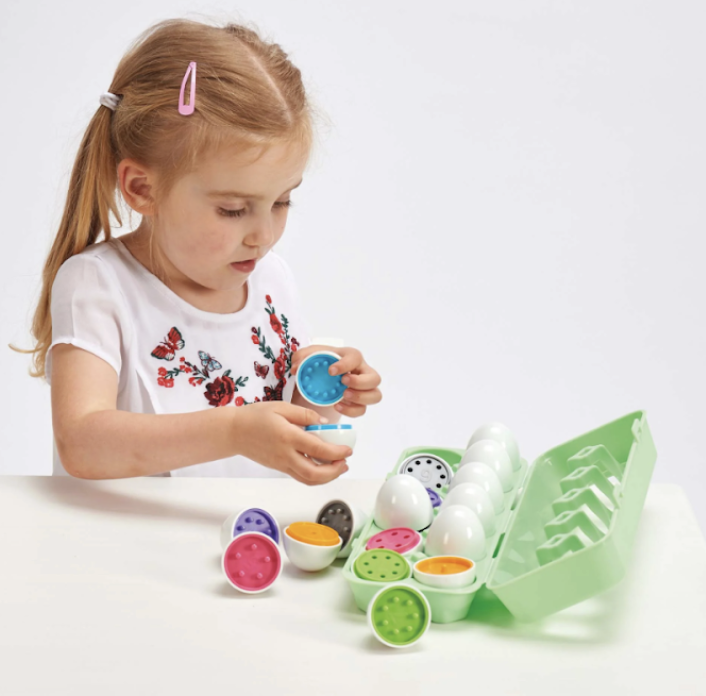
Each egg has a number from 1 to 12 and a yolk in different colours. Each egg half contains a comparable number of pegs or holes, allowing them to fit properly with one another. Children can crack open the eggs, mix them up, and use them as a fun way to practise reading numbers, counting pegs, and colour matching.
Wooden Treasures Starter Set
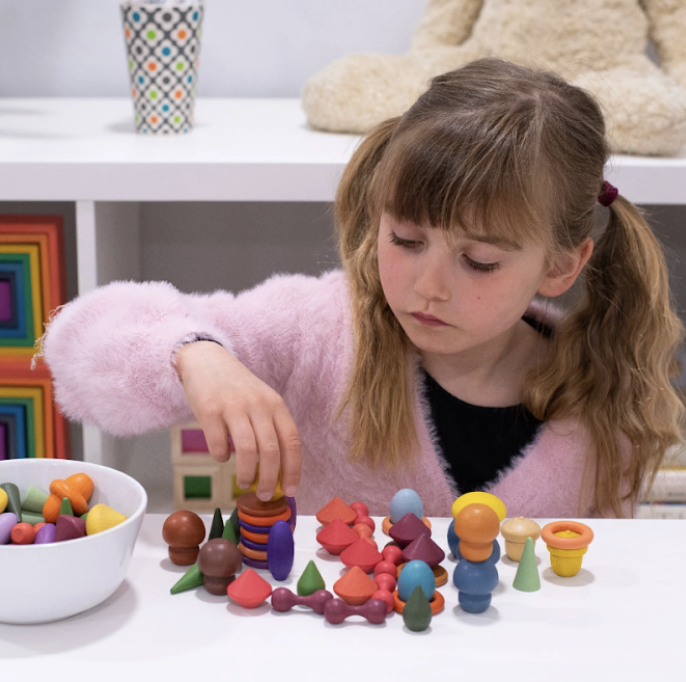
A lovely collection of colourful, smooth wooden treasures will allow your child to experience the delights of play-based learning. These simple yet engaging objects can pique your child's natural curiosity and encourage them to explore and unleash their creativity in imaginative play, while also helping them learn about their environment.
Rainbow Wooden Keys
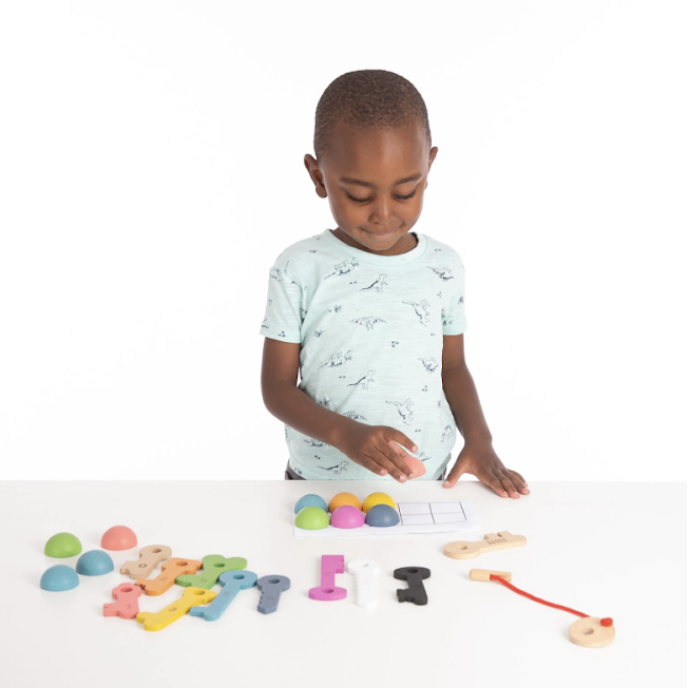
The threader is ideal for helping your child learn about colour, engage their creativity during creative play settings, and develop counting, sorting, and sequencing skills.
Wooden Enchanted Figures
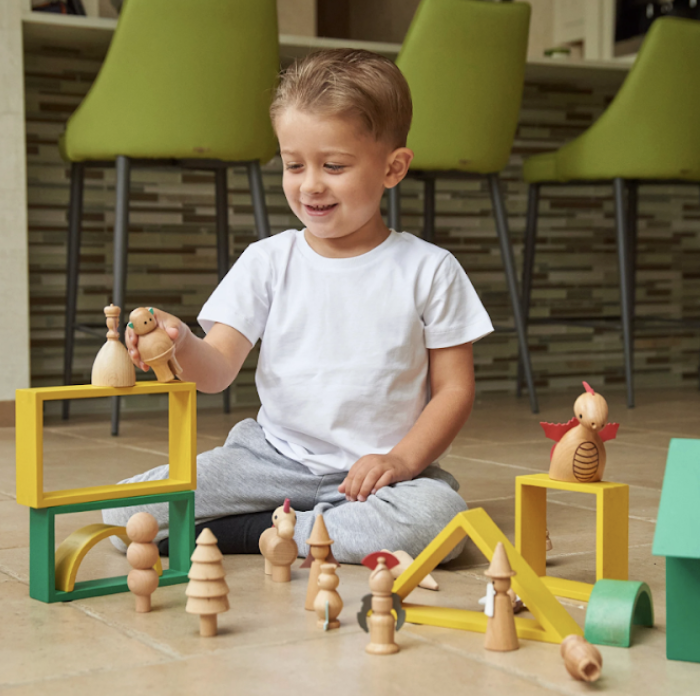
A fascinating collection of 10 typical fairy tale figures is made from gorgeous solid beechwood. The set includes a king, queen, witch, wizard, fairy, knight, dragon, unicorn, frog prince, and ogre. These adorable figurines are tactile and natural, with simple printed features and faux leather accents. Your child can use them to construct stories, create miniature worlds, and practice language skills.


















Leave a Reply